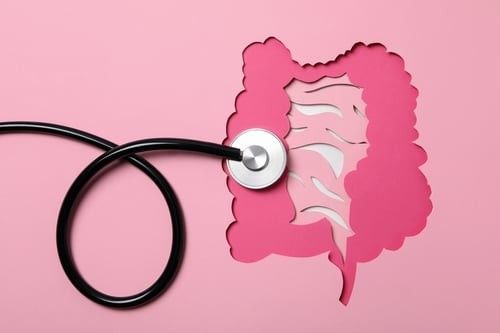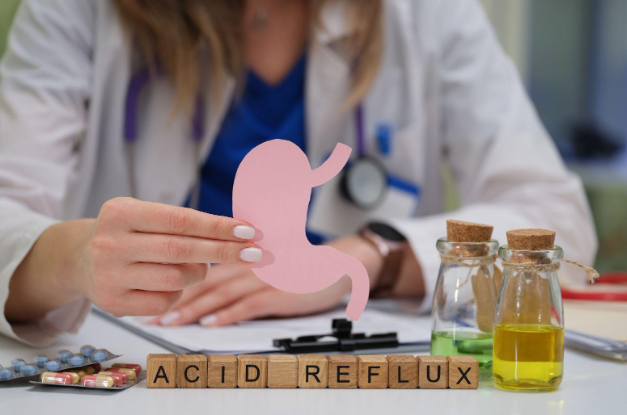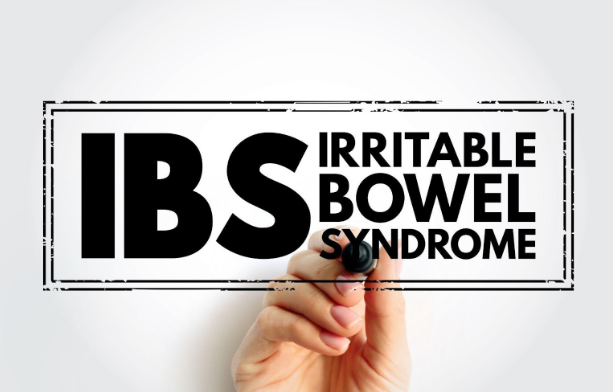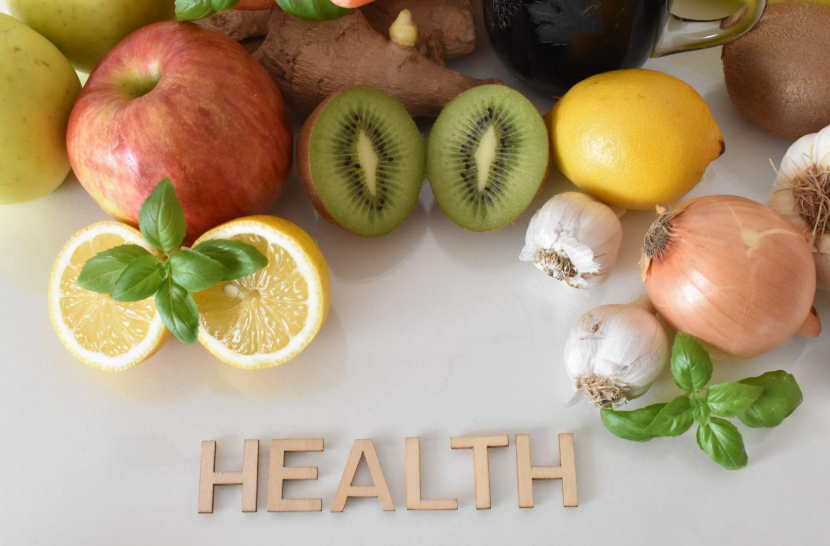Why Staying Hydrated in the Summer Matters for Better Digestion and Gut Health
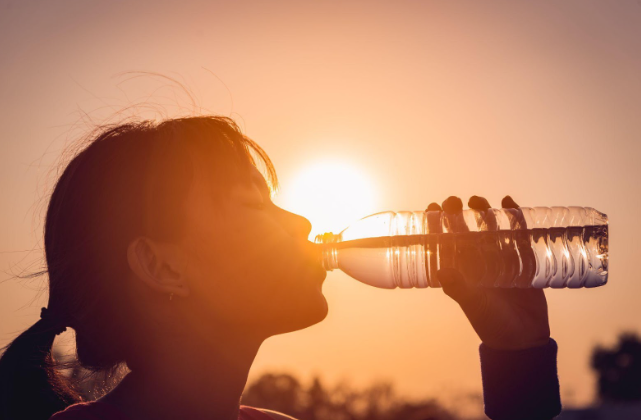
Summer's soaring temperatures and increased outdoor activities can lead to dehydration, significantly impacting digestion and gut health. Without enough water, your digestion slows down, nutrient absorption weakens, and your gut becomes more prone to imbalance and irritation.
Staying hydrated during the summer is essential for protecting your digestive system and supporting
long-term gut health.
How Hydration Impacts Digestion
Proper hydration is essential for every aspect of digestion, from the production of saliva to nutrient absorption in your intestines. Without sufficient water, your body’s digestive processes slow down, making it harder for food to move smoothly through the digestive tract. Here's a deeper look at how hydration supports your digestive system.
The Role of Water in Digestive Enzymes and Saliva Production
When you chew food, your mouth releases saliva, which contains enzymes that begin breaking down starches. This process is only effective when saliva is produced in adequate quantities. Dehydration can lead to a dry mouth, which hinders saliva production, resulting in less efficient digestion and more difficulty swallowing food. This also involves:
Water and Gastric Acid Production
In the stomach, water helps maintain a proper level of gastric acid, which is essential for digesting proteins and activating enzymes that break down food. Insufficient water intake can reduce the efficiency of these digestive enzymes, slowing down the breakdown of food and contributing to bloating and indigestion.
Nutrient Absorption in the Intestines
Your intestines require water to absorb essential nutrients. Dehydration causes the gut lining to become less effective at absorbing nutrients, which can result in a variety of deficiencies. Water also supports the smooth movement of food and waste through the intestines, promoting regular bowel movements and preventing constipation.
The Consequences of Dehydration on Digestive Health
Dehydration doesn’t just affect how you digest food, it can also lead to a variety of digestive issues. Summer heat, exercise, and sweat can exacerbate these problems if you're not replenishing fluids consistently throughout the day.
Increased Risk of Constipation
Constipation is among the most prevalent digestive problems associated with dehydration. When you're dehydrated, your colon absorbs more water from the waste in your intestines, making the stool harder and more difficult to pass. If you aren't drinking enough water to compensate for this increased absorption, it can result in painful and uncomfortable constipation.
Indigestion and Heartburn
When your body doesn’t have enough water, your stomach acid can become more concentrated. This leads to slower digestion and can cause food to sit in your stomach for longer than it should. Over time, this can lead to indigestion and heartburn, as the stomach tries to break down food more aggressively, potentially pushing acid back into the esophagus.
Bloating and Gas
Dehydration can also disrupt the balance of gut bacteria, causing an increase in gas and bloating. A lack of fluid intake can slow down digestion, leading to the fermentation of undigested food in the intestines, which produces gas. Without enough water, it becomes harder for your body to expel this gas, resulting in uncomfortable bloating.
How Hydration Supports Your Gut Microbiome
Your gut microbiome is the collection of bacteria and other microorganisms in your digestive tract and plays an important role in digestion and overall health. Maintaining the right balance of these microorganisms is required for optimal gut health, and hydration is a key factor in this process.
Water and Beneficial Gut Bacteria
A well-hydrated gut is essential for the survival and growth of beneficial bacteria. When you are dehydrated, the pH balance in your gut can change, creating an environment that is more favorable for harmful bacteria and yeast to thrive.
A balanced microbiome helps break down fiber, synthesize vitamins, and regulate inflammation. When hydration levels drop, this balance can shift, potentially leading to digestive issues like bloating, gas, and constipation.
Impact of Dehydration on Inflammatory Processes
Dehydration can also contribute to inflammation in the gut, which is associated with conditions such as irritable bowel syndrome (IBS), Crohn’s disease, and ulcerative colitis. Chronic dehydration may exacerbate these conditions by increasing gut permeability and reducing the effectiveness of the immune cells in the gut lining.
Maintaining proper hydration supports the anti-inflammatory processes within the gut, helping to minimize discomfort from conditions like IBS and preventing flare-ups.
The Link Between Hydration and Common Digestive Disorders
Certain digestive disorders can be significantly impacted by dehydration, especially during the hot summer months. Conditions like acid reflux, IBS, and inflammatory bowel disease (IBD) are particularly sensitive to fluid imbalances.
Irritable Bowel Syndrome (IBS)
People with IBS often experience symptoms like bloating, constipation, diarrhea, and cramping, which can be worsened by dehydration. Water helps regulate bowel function and ease the movement of stool through the colon. Proper hydration is important for maintaining bowel regularity and reducing the frequency and severity of IBS flare-ups.
Gastroesophageal Reflux Disease (GERD)
GERD is a condition where stomach acid frequently enters the esophagus, causing heartburn and discomfort.
Dehydration can slow stomach emptying, which increases the likelihood of acid reflux. Drinking enough water can help the stomach digest food more efficiently, preventing the pressure buildup that leads to
GERD symptoms.
Inflammatory Bowel Disease (IBD)
Dehydration can worsen symptoms of Crohn’s disease and ulcerative colitis by exacerbating diarrhea and promoting fluid loss.
In these conditions, the gut’s ability to absorb water is already compromised, and excessive dehydration can lead to further complications. Staying hydrated can help support normal bowel movements and reduce the frequency of diarrhea episodes.
Hydration and Electrolyte Balance
Summer activities often result in excessive sweating, which can lead to a loss of not just water but also key electrolytes such as sodium, potassium, and magnesium. These electrolytes are essential for normal muscle function, including the smooth muscles of the digestive system.
An imbalance in electrolytes can lead to cramping, digestive discomfort, and irregular bowel movements. Here’s how to replenish electrolytes effectively: consider the following strategies:
- Drink electrolyte-infused beverages (without excess sugar) to replace lost minerals after sweating.
- Eat potassium-rich foods like bananas, avocados, and sweet potatoes to help maintain fluid balance.
- Incorporate magnesium-rich foods like spinach, almonds, and pumpkin seeds to support gut motility.
- Avoid sugary sodas and caffeinated drinks, which can contribute to dehydration.
The Best Hydrating Foods for Gut Health
In addition to drinking plenty of water, eating water-rich foods can help maintain your hydration levels while supporting digestive health. These foods not only keep you hydrated but also provide fiber, antioxidants, and other nutrients that benefit your gut microbiome.
Fruits and Vegetables
Certain fruits and vegetables have exceptionally high water content and can contribute significantly to hydration:
- Cucumbers: Contain about 95% water and are great for hydration while being easy on your digestive system.
- Watermelon: A hydrating fruit that’s packed with antioxidants to protect your cells.
- Cantaloupe: Rich in water and fiber, which helps promote digestion and regularity.
- Berries: Not only hydrating, but also full of antioxidants that support gut health.
- Leafy Greens: Vegetables like spinach and kale are hydrating and provide fiber to keep the digestive system functioning smoothly.
Hydrating Soups and Smoothies
If you're looking for a way to add hydration and nutrients in one go, opt for soups and smoothies made with hydrating vegetables and fruits. These can be customized to include fiber-rich ingredients like chia seeds or flaxseeds, which help keep things moving through the digestive tract.
How to Maintain Hydration During Summer Activities
It’s easy to overlook hydration when you’re busy enjoying summer activities, but staying proactive is key to avoiding dehydration. Whether you’re going for a run, spending the day at the beach, or attending a summer festival, keep hydration at the forefront of your mind.
Tips for Staying Hydrated on the Go
Whether you're commuting, running errands, or spending time outdoors, it's easy to forget to drink enough water. However, maintaining hydration is crucial for digestion, energy levels, and overall health, particularly during the summer. Here are some practical tips to help you stay hydrated, even when life gets busy:
Carry a Reusable Water Bottle
Having a water bottle with you at all times is one of the simplest ways to ensure you stay hydrated. Choose a bottle that’s easy to carry and has a large enough capacity so you don’t need to refill it constantly. Consider bottles with time markers to track how much you’ve consumed throughout the day.
Hydrate Before You Leave
Start your day with a glass of water before heading out the door. This gives you a solid hydration foundation to start with, making it easier to stay hydrated during the day.
Infuse Your Water
If plain water doesn’t excite you, infuse it with fruits, herbs, or vegetables. To give your water a refreshing twist, add slices of cucumber, lemon, or berries. If you’re not in the mood for plain water, you can get hydration from water-rich foods.
Carry snacks like watermelon, cucumber slices, or celery, which are high in water content and can help keep you hydrated.
Be Mindful of Caffeinated Beverages
Coffee and soda are often dehydrating, so while they might give you a boost of energy, they don’t support hydration. If you consume caffeinated drinks, balance them with extra water to compensate for fluid loss.
Use Hydration-Tracking Apps
Several apps track your water intake and send reminders to drink. Some even allow you to log the water you consume, making it easier to monitor your hydration habits on the go.
If you’ve been dealing with digestive discomfort or you're unsure how hydration fits into your overall gut wellness, it’s time to get expert support. Our specialists at
Northlake Gastroenterology Associates are available to help you identify the underlying issues and develop a personalized approach to digestive health.
Schedule your consultation today and take charge of your gut health this summer.
More Blogs




